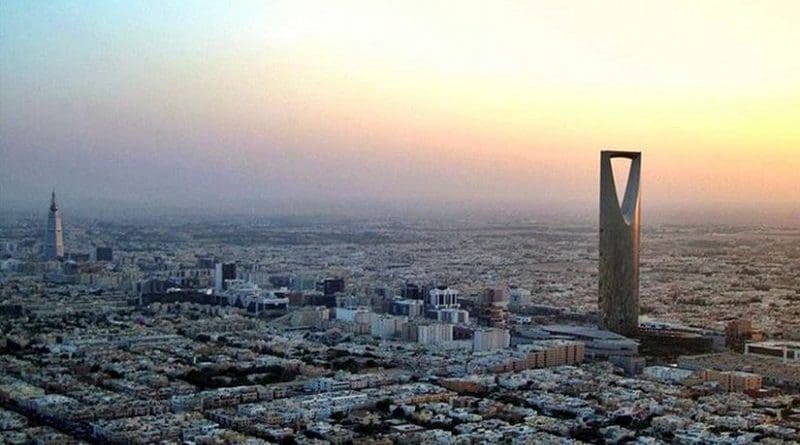Saudi Arabia: Inflation Increases On Rising Food Costs
By Arab News
By Rebecca Spong
The rising cost of food and drink in Saudi Arabia helped push up the Kingdom’s inflation rate last month, though it still remained below its recent peak of 3 percent in January.
Consumer prices rose by 2.2 percent year-on-year in July compared to 2.1 percent in June, an increase driven by increasing food prices, particularly vegetables.
“The breakdown of the data showed that the slight rise in headline inflation last month was driven by a jump in food inflation,” read a note from Jason Tuvey, senior emerging markets economist at Capital Economics.
Food costs — which account for a fifth of the basket of goods and services used to calculate inflation rates — rose from 5.7 percent year-on-year in June to 6.7 percent last month.
Vegetable inflation reached 8.1 percent year-on-year in July compared to a decline of 0.8 percent year-on-year recorded in June.
Inflation in Saudi Arabia peaked earlier this year after the introduction of value-added tax and government-imposed price rises sent costs soaring.
Clothing consumer prices declined by 8.3 percent compared to a slightly smaller decline of 8 percent in June, a reduction that offset some of the impact of the hike in food prices on headline inflation.
Inflation in Saudi Arabia peaked earlier this year following the introduction of the new value-added tax and government-imposed price hikes that sent costs soaring as the Kingdom sought to create new sources of revenue. Saudi Arabia — along with other Gulf countries — has been eager to diversify its economy away from its reliance on the oil industry.
Inflation is likely to keep increasing this year, according to analysts, before it starts to decline at the start of 2019. “Looking ahead, we expect that inflation will edge higher over the remainder of this year as stronger economic growth fuels underlying price pressures,” said Tuvey in a research note.
By the start of next year, headline inflation is forecast to slow as the impact of the VAT and subsidy cuts diminish.
“The upshot is that we expect that inflation will fall to around 1 percent year-on-year in January 2019,” Tuvey said.
The International Monetary Fund forecasts inflation to reach 3 percent for 2018 due to the VAT charge and increased gas and electricity prices, before it stabilizes at 2 percent in the medium term, according to its July review of the Saudi economy.
The inflation figures follow news earlier in August that business conditions in the Kingdom’s non-oil sector have eased, with the Emirates NBD Purchasing Managers’ Index falling to 54.9 in July from 55 in June. Any reading above 50 indicates growth rather than contraction.

